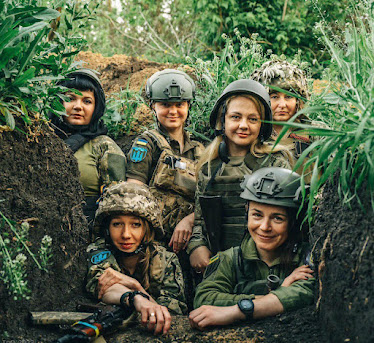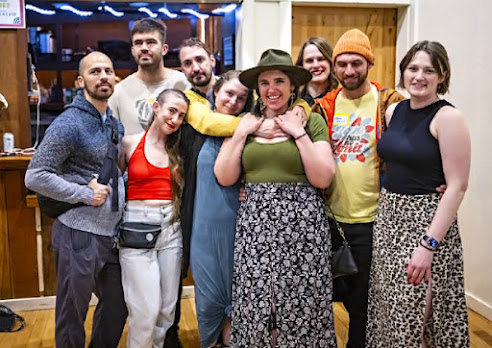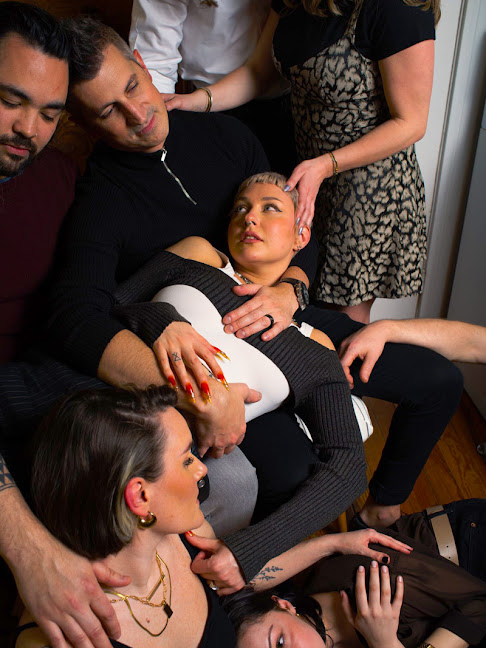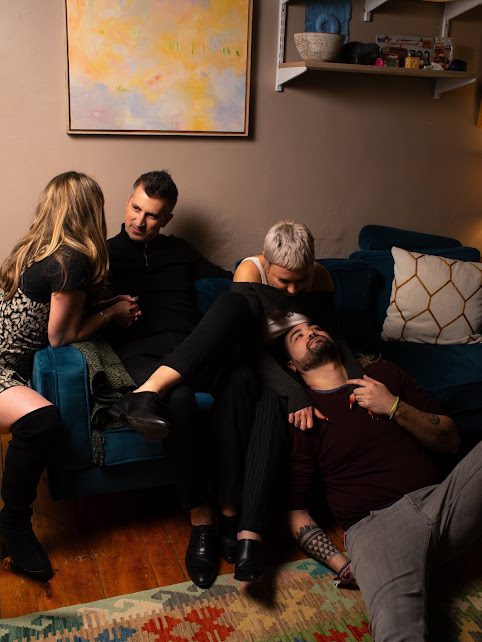Are poly people annoying? Also, Oakland's new relationship non-discrimination law. A spate of open-marriage discovery books. And more.
"Polyamory sometimes seems like a practice made to generate
conversations, writes Brandy Jensen." (Getty Images)TOO OFTEN THESE DAYS I find myself in the position of defending someone I think is annoying from someone I know is dangerous. Most recently this happened with polyamorous people, the existence and behaviors of whom many readers claim to be tired of talking about, only to gleefully comb through every new book or magazine profile. ... I’m guilty of participating in the endless chatter: these too-deep dives are very easy to make fun of. Plus I’m not straight and live in New Orleans, and you can only go on so many dates with people who say things like, “I separated from my nesting partner to go solo poly, although lately I’ve been thinking I’m actually more of a relationship anarchist,” before you build up sufficient resentment to want to get a few jokes in.This isn’t the fault of the polyamory community as a whole. It’s easy to have your scene ruined by annoying rich people (for example, San Francisco) or to make something cool sound uncool by talking about it too much (for example, weed) or to be right and yet still be embarrassing about it (for example, atheism). The lighthearted mockery of terms like “compersion” is mostly a harmless good time, until it inevitably provides cover for reactionary sexual politics. Suddenly someone is writing an essay in The Atlantic about how polyamory is bourgeois, and before I can even think “That doesn’t seem right,” a bunch of revanchist weirdos eager to roll back the Sexual Revolution are chiming in on X to call polyamory both bourgeois and morally degenerate, and all the fun has been sucked out of my eye-rolling. And so I end up back in bed with the polyamorists, wishing they could figure out how to make having sex sound sexier.-------------------------------------THE FIRST TIME I slept with a couple it felt like it happened by accident. I don’t mean that it was farcical, but simply that there wasn’t any planning beforehand. Had they told me in advance that they were interested in sleeping together, I probably would have laughed. As I remember it, we were in a big room full of people at a party, and then somehow we were in a bathroom doing drugs, and then somehow we were in a bed doing things I’d never done before. ...A classic critique of polyamorists: these people appear to like talking about sex more than they like having it. Perhaps that’s unfair, but polyamory sometimes seems to me like a practice made to generate conversations. Conversations between partners about the possibility of new lovers and between new lovers about prior partners, meta-conversations about how well or poorly all these conversations are going—and, of course, conversations between people who aren’t in any way involved.-------------------------------------There’s no getting around how important communication is to the polyamorous lifestyle. They are always communicating. This ardor for talking may be, in part, what inspires so much chatter among outside observers. ... Monogamous marriages are famously inscrutable to outsiders — you never know what really happens behind closed doors. [But when they're poly] how thrilling to feel that one’s nosiness is justified. Don’t you think this is a sign they’re going to break up? Is she really okay with it, or is she just doing it to make him happy? Do they think we’re prudes now? Can you believe they think they’re better than us?-------------------------------------And then there is the content of the communication between polyamorous people about the practice itself, which can come off as smug. In January’s New York feature, a member of a polycule named Nick described his relationship like this: “Some people like to run marathons. We like to do polyamory, complex relationship stuff. Sarah’s favorite activity for the two of us to do is couples therapy.” A member of the Boston polycule featured in The New York Times had this to say: “We learned a strategy from the Multiamory podcast called ‘agile scrum,’ which was adapted from business-meeting models. We utilized that format. We did that for a year and a half, at least once a month, sometimes six to 10 hours of hard poly-processing. That gave us great communication tactics.” I have no interest in going to grad school for relationships, especially when the other students sound so keen to be best in class.-------------------------------------THIS KEENNESS TO STUDY, and schedule, and have discussion groups, goes some way to explaining the moniker sex nerds, which my friends and I began using a few years ago to express our benign derision, and a long way to explaining the temptation to bully them. Nerds have spent the past few decades triumphing in almost every aspect of American popular culture, and it’s impossible to make them feel bad about it. ... But the classic tactic of saying they are doing sex in a weird way remains available—especially when they’re so eager to tell you about how they play Catan with their polycule every Wednesday.Polyamory, in this country at least, has pretty much always been the domain of nerds, as... Christopher Gleason’s [recent book] American Poly: A History, makes clear. ... All of these earnest weirdos thought they could remake the world, and insofar as they succeeded, the results have been unevenly distributed.... Liberationists and free lovers had hoped that remaking sex might remake the world, but the relationship between sex and other terrains of political struggle has turned out to be far more complicated. ... Nonmonogamy does not automatically bring about the structural changes which might materially improve intimate life for everyone, As it becomes increasingly popular, [historian Florence] Sutcliffe-Braithwaite cautions, it may also become more easily “sublimated into simple lifestyle politics.” It can therefore be maddening when some polyamorists insist that a day job making surveillance technology does not preclude them from considering themselves politically radical, as long as they spend their weekends having orgies....Some threshold number of polycules will never bring down a government.... If what one wants is revolution, of course it isn’t enough to be a revolutionary of sex—but neither does that mean that we shouldn’t be. The answer to any critique which distinguishes between sexual and material freedom must be to claim both. In a system that seeks to atomize and isolate, there is still some emancipatory potential in exploring different styles of living. ...
More documents Roden Winter’s life from 2008 to 2018. “I’ve done a lot of living since then,” she says, “a lot of thinking and experiencing. How we do polyamory today is hugely different to what’s at the heart of the book.” Her marriage has evolved, as has the wider conversation about ethical non-monogamy. At present, the couple are properly poly. “My husband and I both love multiple people,” she says, “and it makes us love each other more, not less.” She has two additional partners: one relationship has been ongoing for three years, the other for two. ...“One response” from critics, she says, “has been to tell me how my husband manipulated me into having an open marriage. That I’m a victim of the patriarchy with no agency.” Certainly, he encouraged the idea – Roden Winter being with other men was a turn on for him. “At first, the only way I could give myself permission was by telling myself that Stew wanted me to have sex with someone else. I was still trying to please him.” But therapy reshaped her rationalisation. “Women of my generation were taught to be pleasers. That being a good mother is to take burnt toast and scraps. In time, I realised I was craving something of my own, that didn’t belong to the marriage.”Needless to say, there have been snipes and revulsion aplenty from conservatives. “Their view is that I’m a pervert and, with kids involved, what we’re doing is immoral. Meanwhile, they’re 19 and 22 and completely flourishing. It’s why I felt in a good position to write the book.”...Roden Winter feels the book has proved both popular and divisive not because of its content, but who its author is, and what she represents. For generations, queer people – and gay men in particular – have operated outside the marriage, children, monogamy trifecta. ... “The idea it’s an American heterosexual woman, with children, talking so openly? A heteronormative couple breaking the rules and being honest about it?” This, Roden Winter believes, is what’s causing a stir.“It shows that people like me could be anywhere. I have a husband, house and kids. I dress, act and live like a Park Slope mom. It throws people off kilter to imagine they, too, could live like me. That I have children, who aren’t fucked up and I’m not being manipulated or miserable.”...And there have been plenty of positive responses to the book: young parents, mothers in particular, in newly opened marriages grateful for seeing their experiences and emotions acknowledged. ...“Where I live, people consider themselves super liberal. You’ll see in shop windows matching mother and daughter sized shirts emblazoned with ‘The future is female’. But the rules for how you’re supposed to behave as a mother are suffocating, I feel. We put mothers into these straitjacketed roles and shame them for not fitting. ... That’s why this book resonates.”...Frankly, it all just sounds… exhausting? Not the sex, specifically. But managing multiple long-term romantic relationships. “Most worthwhile things are,” she replies. “We don’t say: medical school sounds so hard, just quit.”......Only one rule remains in place today. “If one of us has feelings about something the other is doing,” she says, “we have to work through it together. You can’t say ‘Don’t be jealous’ or ‘It’s ridiculous that you feel insecure’. You have to help the other person feel better.”...
By Cassie WerberI settled back into the train seat and pulled a notebook out of my bag: something extraordinary had happened... the night I’d [just] spent near Brighton with a man I’d known for years, but seen again in a whole new context. About how delighted I felt, how hot, how incredibly free.My body, which had been pregnant in the Covid pandemic, given birth and then dragged itself through several house moves with a baby and a three-year-old, seemed to be renewed, on fire. My mind was blown, and my lips were bruised. ... I texted friends, caught eyes with strangers: I wanted to talk to everyone about how I was feeling. Most of all, I wanted to tell my husband.For plenty of people, the idea that I could be so excited about a new sexual encounter, and at the same time in a truly committed marriage, doesn’t compute. But that’s the experience I’ve had for the last eight years, during which I’ve been married to my life partner, had two children, pursued career goals – and also seen other people. It hasn’t all been easy but, honestly, it hasn’t been fraught. ......So how did it happen? ...In the first year of our marriage, we started talking about going together [to a sex club]. We’d both assumed that that world, which we’d only brushed up against before, was probably closed to us now; we were excited to discover it wasn’t. This discussion was organic, gradual and mutual, segueing from the language of fantasy into one of more concrete, real-world plans. It wasn’t driven by one person, and no one had to do any convincing. We didn’t know what it would feel like to experiment with other people, whether it would be the right step for us. We didn’t know whether we’d feel jealous.There are an infinite number of ways to be in an open relationship. ... David and I haven’t felt the need to lay down hard rules for our relationship. So far, at least, we seem to understand each other and communicate quite well. We set aside times for the discussion of worries and annoyances, and usually do so out of the house, while walking. We also talk to each other about the more intense feelings that do, sometimes, come up: rejection or hurt, longing or confusion. Our relationship isn’t some kind of ideal template. We argue as much as many couples. We just don’t often argue about this.That doesn’t mean it’s always easy. When I stepped off the train after that incredible night away, I walked into several hard days. I found myself feeling really strong, but also spiky. The house was still a mess. Our son still didn’t like preschool. David wanted me to slot back into the exact groove I’d left. But I felt wild, in a good way, and didn’t want to fit back in. ...
By Nicholas Rice...Highlighting whether a throuple is right for certain individuals, Bisbey first warns, "Getting three people who align enough to live together with deep intimacy is not simple."However, "If you are willing to live with two people and have the skills to work through the complexity, it might be a good choice," she adds. "One reason is that two incomes aren’t enough in a lot of places, so three people sharing works better."...Bisbey tells PEOPLE signs that it might be the "right choice" include: "You didn’t mind sharing your toys (even your favorite ones) as a child, you desire high levels of communication and interaction with people, and you have found it difficult to be monogamous."Other reasons that she considers non-monogamy may be of interest to people is if they "have lots of complicated desires and needs, really enjoy complexity in your life (but not drama) and have a high level of honesty with yourself and others and are willing to be authentic."..."People often romanticize being part of a throuple, but it is actually quite complicated. It is easier to have multiple separate relationships where you are not all sharing space, finances, decisions about everything," she explains. "Throuples work together like couples, dividing labor between three instead of two. Consensus is harder because of more people. Higher levels of communication are needed and all relationships within the group need attention."Speaking about the stigma surrounding throuples, and the reaction they may receive for their relationship type, Bisbey offers a few words of advice."Be prepared to educate people when needed, but remember not everyone is entitled to know your business.... Make sure you have thick skin. If you offend easily, do some personal work to increase your resistance to other people’s views of you. Keep your life private and only share what you are comfortable with anyone knowing.""Finally, make friends with other non-monogamous people."
By Abby Patkin...According to The New York Times Magazine, the term “polycule” suggests “an intricate structure formed of people with overlapping deep attachments: romantic, sexual, sensual, platonic.” In other words, a sort of web of various relationships and personal connections.One polycule member interviewed for the article said the Boston-area group includes about 20 people in their mid-20s to mid-40s, with gender identities and sexual orientation running the gamut. ...“It’s an evolving organism that looks entirely different from everyone’s perspective,” Ashley said....“It’s loving people in a very unapologetic way, not conforming to norms,” polycule member Bine said, later adding, “As a woman, and as a queer woman, being able to live my life as authentically as possible without needing my husband’s permission, that’s empowering.” ......The bottom line: If you’re polyamorous and/or looking to join or form a polycule, the Greater Boston area isn’t a bad place to be. ...
By Julia Pugachevsky...Agile scrum is a combination of business principles and strategy. The idea is for teams to break down their deliverables into smaller tasks and shorter timeframes, reviewing their progress as they go. That way they can swiftly adapt to changes to produce more effective results in the long run.In The New York Times, Ann said the couple practiced agile scrum "for a year and a half, at least once a month, sometimes six to 10 hours of hard poly-processing."...[She and her husband] said agile scrum — which they learned from the podcast, Multiamory — helped them to find themselves and each other within the polycule dynamic....In 2001, 17 software developers in Utah got together and wrote a manifesto on ways to improve their work. Agile is a set of principles that promotes collaboration and flexibility among teams to produce faster and more effective results. The values include "individuals and interactions over processes and tools," and "responding to change over following a plan."Scrum is a concrete framework based on agile philosophy that involves smaller, cross-functional teams delivering products in short cycles, or "sprints." It's essentially a more structured approach to agile principles, allowing teams to frequently complete projects together and give each other feedback.At some point, agile scrum crossed over into the realm of love. ...
 |
| Click image to enlarge, click here for the survey. |
You might be aware of some discourse in the online forums about how neurodivergent people (especially autistic and ADHD) seem to be more likely to be attracted to non-monogamy, but nobody has studied this empirically yet. I feel pretty fortunate to be the person who is undertaking the topic for my PhD, and hope to do the community justice in exploring whether there are specific motivations, experiences or supports relevant to different types of practitioners.
Whilst my lab focuses on autism, we're accounting for all neurotypes, and welcome self-identified participants, those with formal diagnoses, those who are non-autistic and those who are unsure. Participants just need to be 18+ and be proficient in English. They can come from any location, have any relationship preferences or experience, and identify with any gender or sexuality.
Here was a country with a tragic history that had at last begun to build, with great effort, a better society. What made Ukraine different from any other country I had ever seen—certainly from my own—was its spirit of constant self-improvement, which included frank self-criticism. For example, there’s no cult of Volodymyr Zelensky in Ukraine—a number of Ukrainians told me that he had made mistakes, that they’d vote against him after the war was won. Maxim Prykupenko, a hospital director in Lviv, called Ukraine “a free country aspiring to be better all the time.” The Russians, he added, “are destroying a beautiful country for no logical reason to do it. Maybe they are destroying us just because we have a better life.”
Some LGBT folx in the armed forces display symbols of LGBT pride on their uniforms, with official approval, whereas in Russia it's a prison-worthy crime for even a civilian to show a rainbow pin or "say gay." A report on Ukraine's LGBT+ and feminist acceptance revolutions. Another. Another. Another. War changes things.
 |
| Women defenders near the eastern front |
Whenever people write to my office [asking why we are supporting Ukraine,] I answer, 'Google Sudetenland, 1938.' We could have stopped a murderous dictator who was bent on geographic expansion…at a relatively low cost. The result of not doing so was 55 million deaths.
Labels: #OpenRelationshipBooks, #polyactivism, #Polyamory rights, #polyamoryandneurodiversity, #PolyamoryintheNews, #PolyamoryLegal, #PolyamoryLegislation, #PolyLegal, books, legal, SF Bay Area













